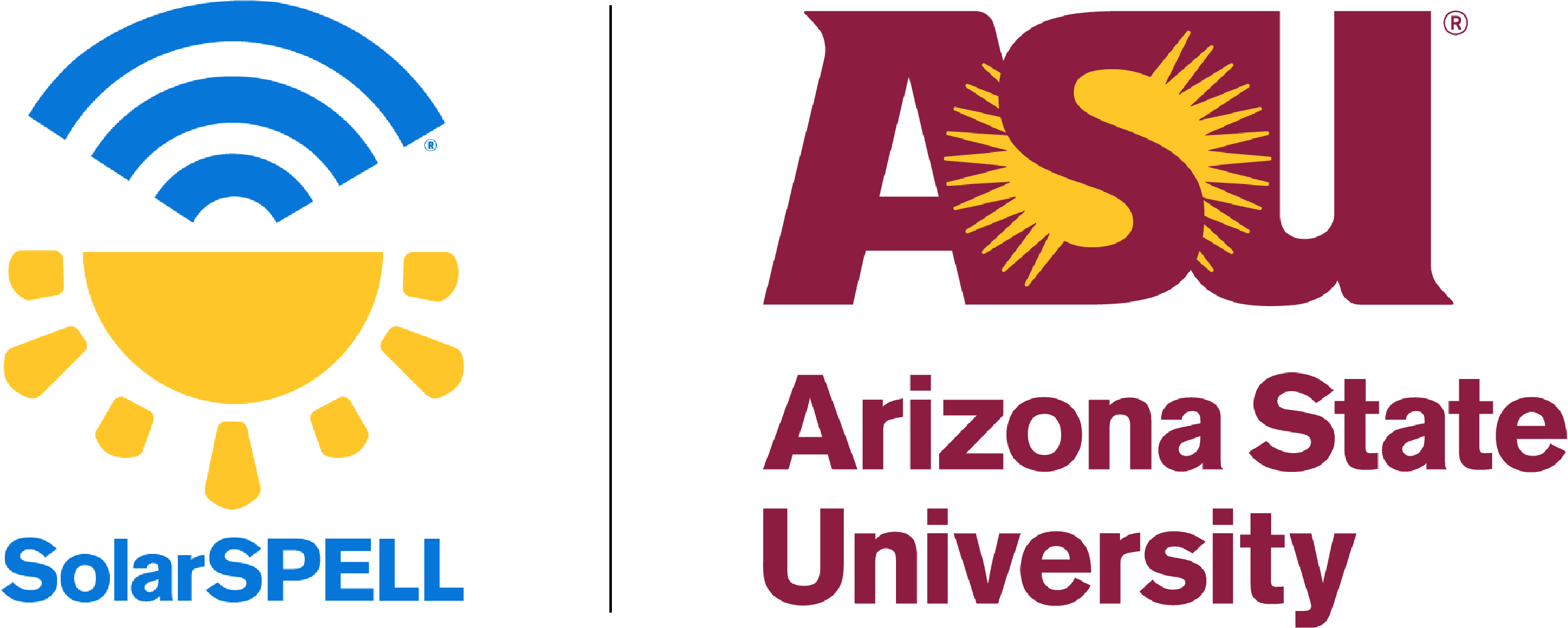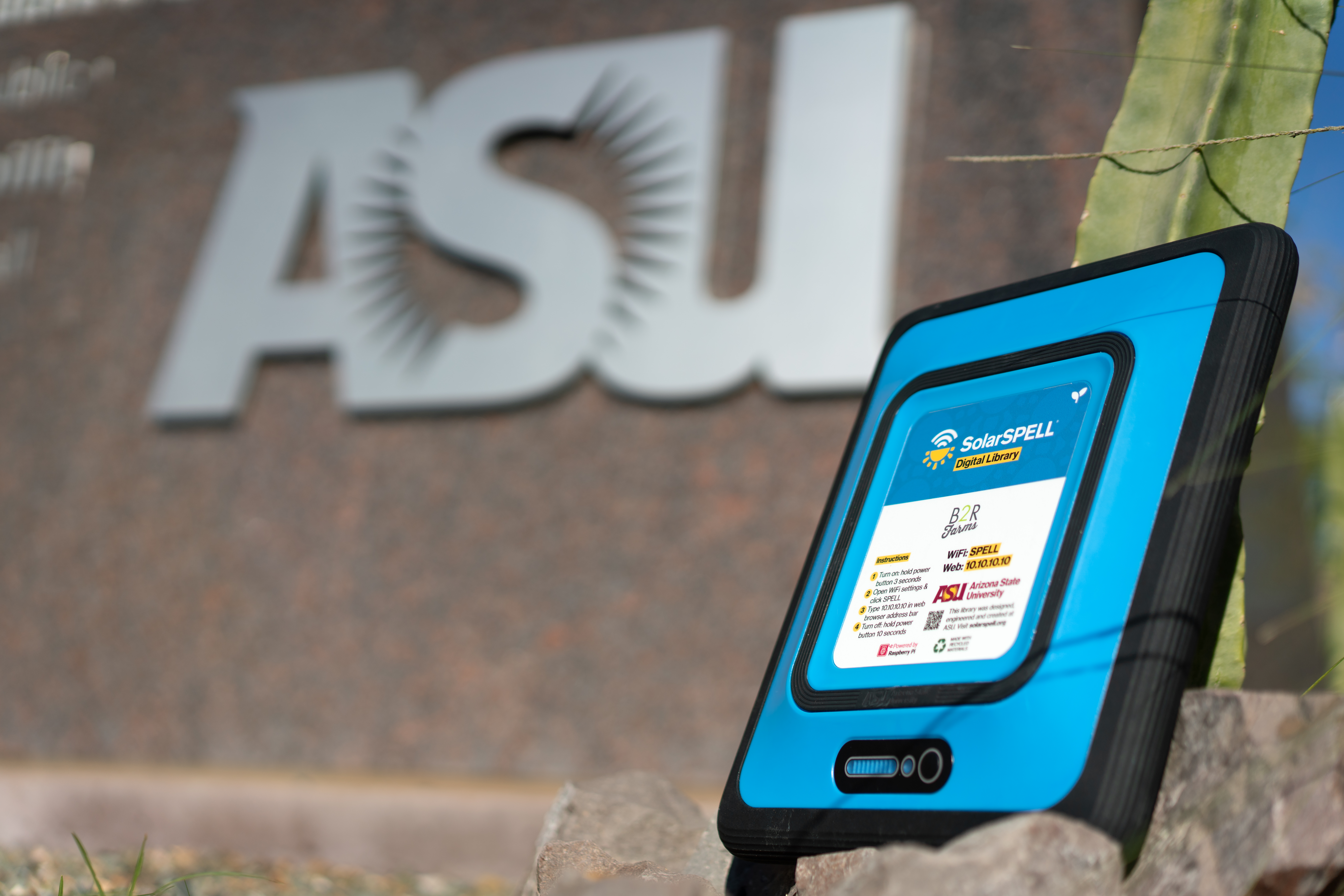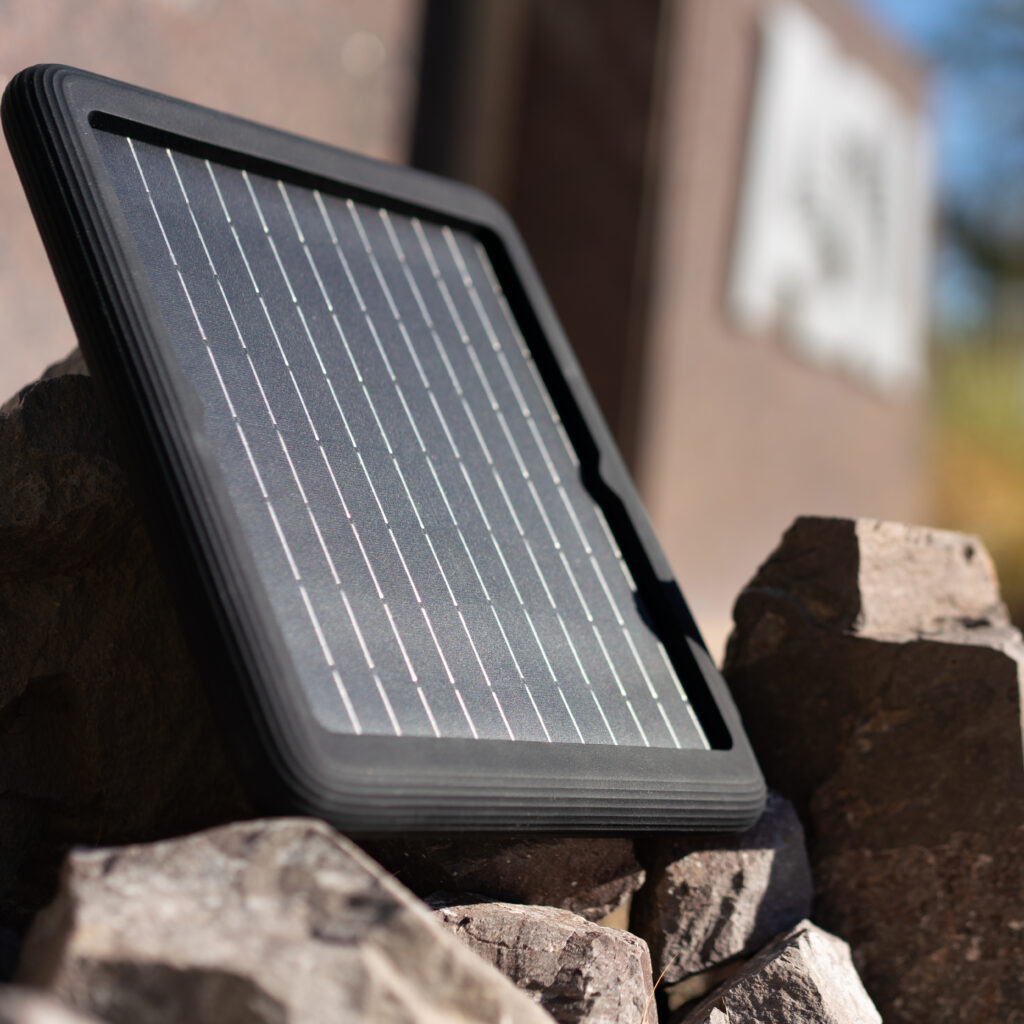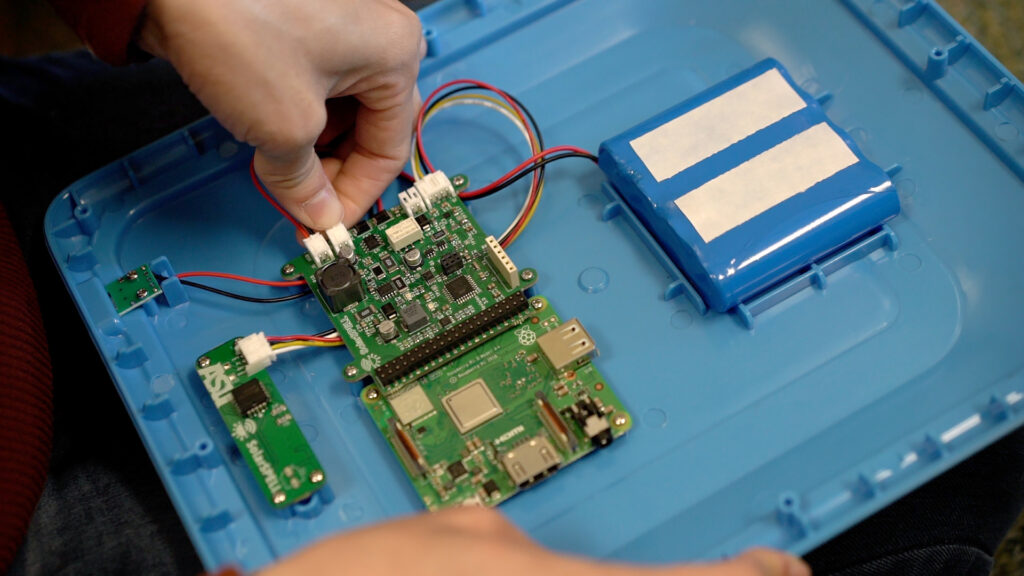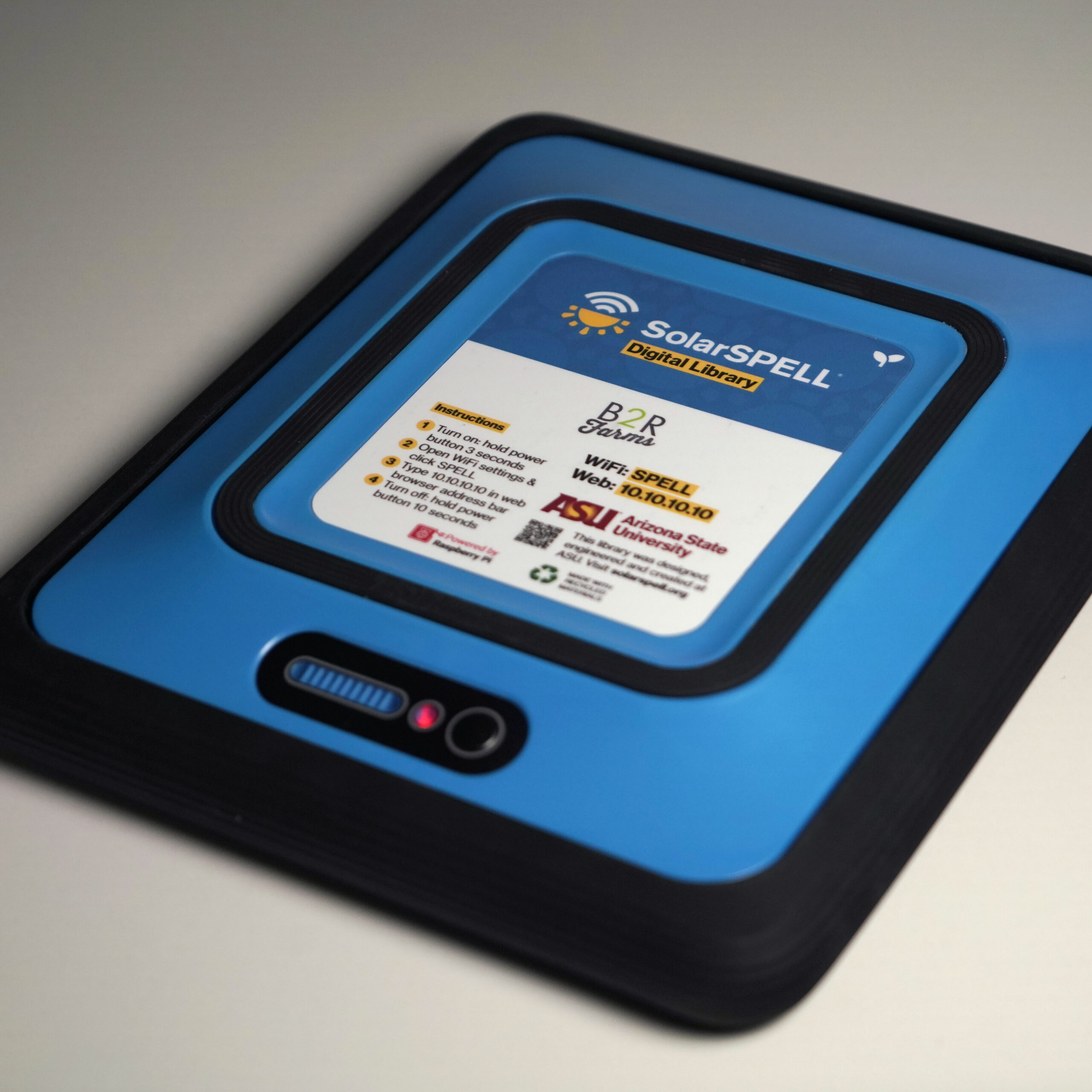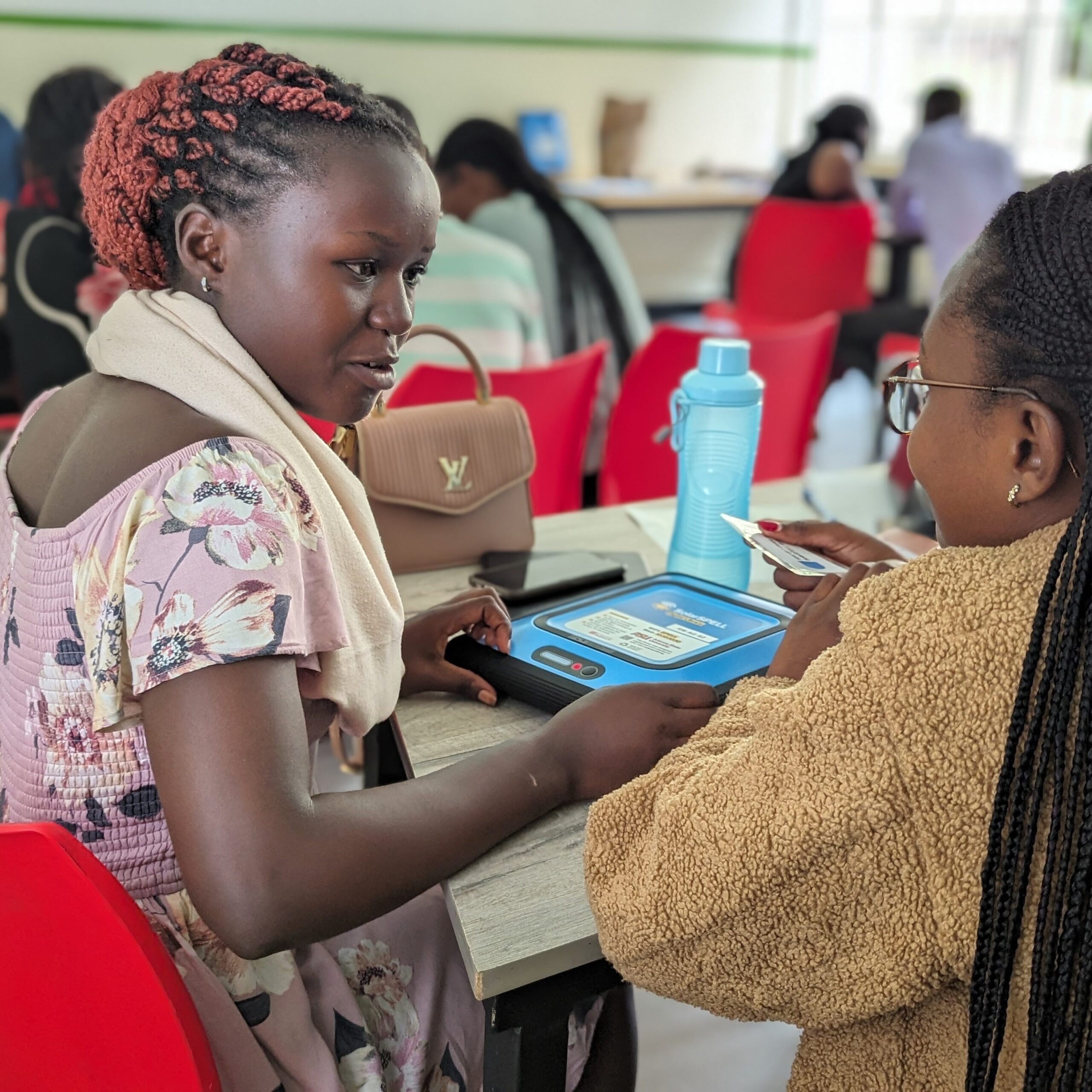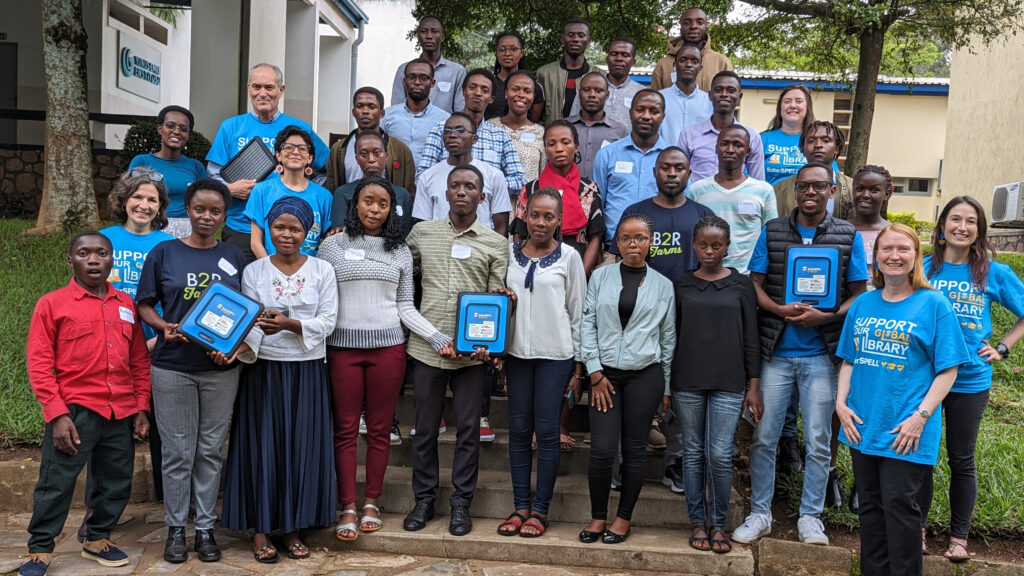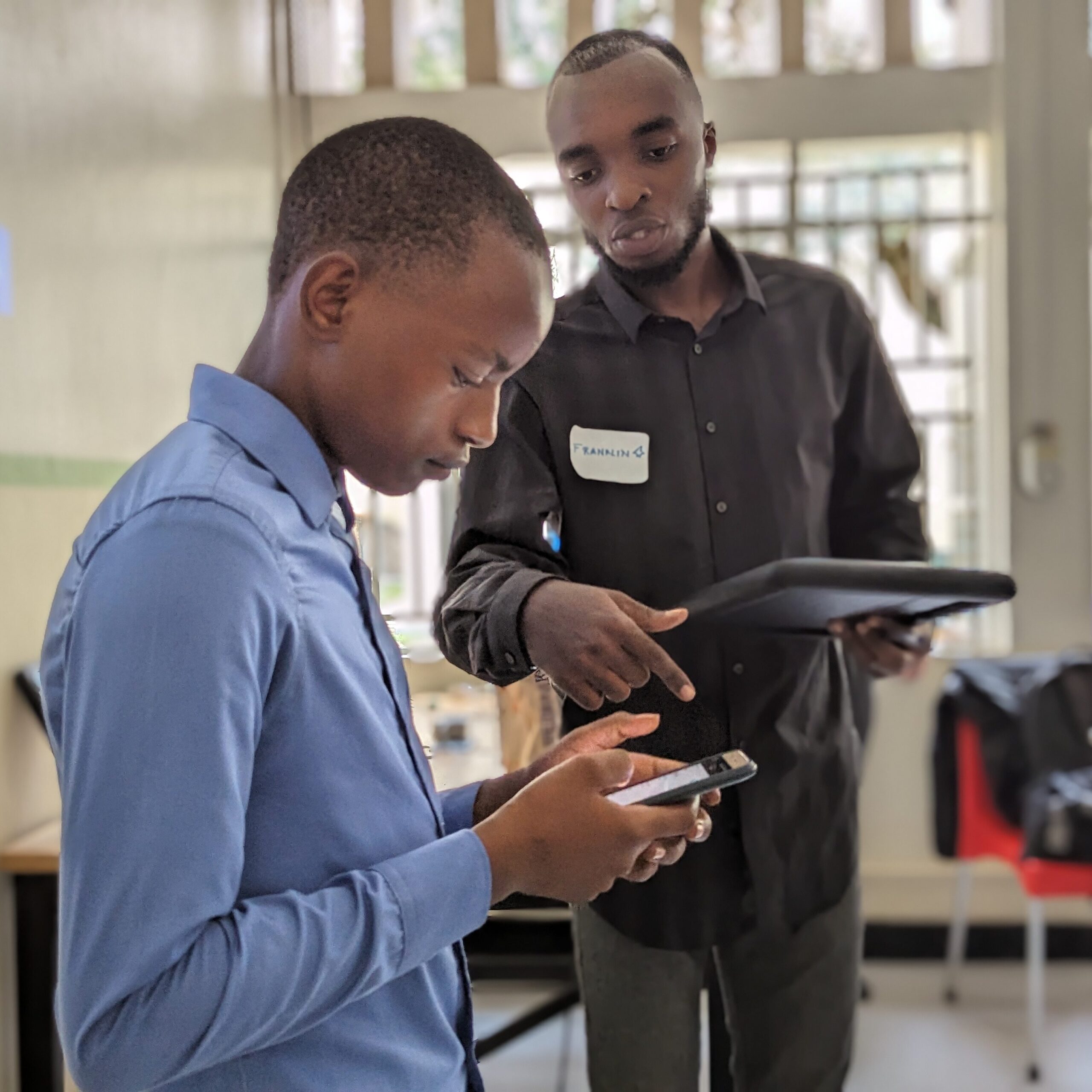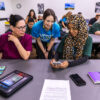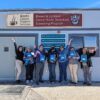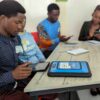We are thrilled to announce the launch of our new-and-improved hardware, which makes it easier than ever for learners around the world to connect to SolarSPELL Digital Libraries! Engineered and created by ASU students, faculty and staff, the new design features a compact case that is easier to use and more durable than its predecessor, as well as a patent-pending charge controller engineered to maximize the amount of power extracted from the solar panel.
For the last nine years, SolarSPELL libraries have been made using off-the-shelf materials, but in 2019 we began designing our own components to better meet users’ needs. The effort to redesign our library hardware began in 2019 and involved students, faculty and staff across ASU’s Herberger Institute for Design and the Arts, Ira A. Fulton Schools of Engineering and Core Research Facilities working on computer engineering and industrial design.
Made with recycled plastic, the streamlined new case is shock-, heat-, dust-, and water-resistant. And to help users determine the optimum time and place to charge their library, our new charge controller monitors voltage and amperage, enabling us to show users via an offline web interface how much power is flowing into or out of the solar panel.
SolarSPELL libraries have always used Raspberry Pi microcomputers to offer up the library via a Wi-Fi hotspot, and this version is no different. The new charge controller was specifically engineered to work with the Raspberry Pi 3 Model A+, and last year, SolarSPELL became one of 162 products to be granted official ‘Powered by Raspberry Pi’ status.
Our new digital libraries made their debut in Rwanda, where we are working with B2R Farms to promote climate-smart and conservation agriculture practices. Their team has been instrumental in helping curate locally relevant agriculture resources, sharing training videos their team created to teach Foundations for Farming conservation agriculture practices. And last summer four B2R Farms interns translated and curated 150 resources in the local language of Kinyarwanda.
This January, we trained a cohort of B2R Farms apprentices, who will use our Agriculture Library in their work with government extension agents to provide technical assistance to smallholder farmers. This training included more hands-on activities than ever to help participants practice teaching digital novices how to use the SolarSPELL library.
And here in Arizona we’ve partnered with Hopi Cancer Support Services, bringing our new libraries to the Hopi Tribe to empower health educators and patient navigators with a collection of culturally relevant cancer education resources. “SolarSPELL offers an innovative solution to overcome the challenges of delivering critical health education and resources to our remote villages on the Hopi Reservation,” said Kellen Polingyumptewa, coordinator for the Hopi Tribe Women’s Health Program.
Aurelia Taylor, an ASU Doctor of Nursing Practice student and member of the Hopi Tribe, is playing a key role in facilitating this project for her capstone. During our training, Aurelia presented on the social determinants of health, cancer rates among Indigenous communities and the role of patient navigators — in each case noting opportunities for how the SolarSPELL library could be used as a tool.
According to Kellen, “By utilizing this solar-powered digital library, SolarSPELL will enable our patients, staff and community to access cancer-related educational material without the need for internet connectivity and empower individuals facing cancer to better understand their diagnosis.”
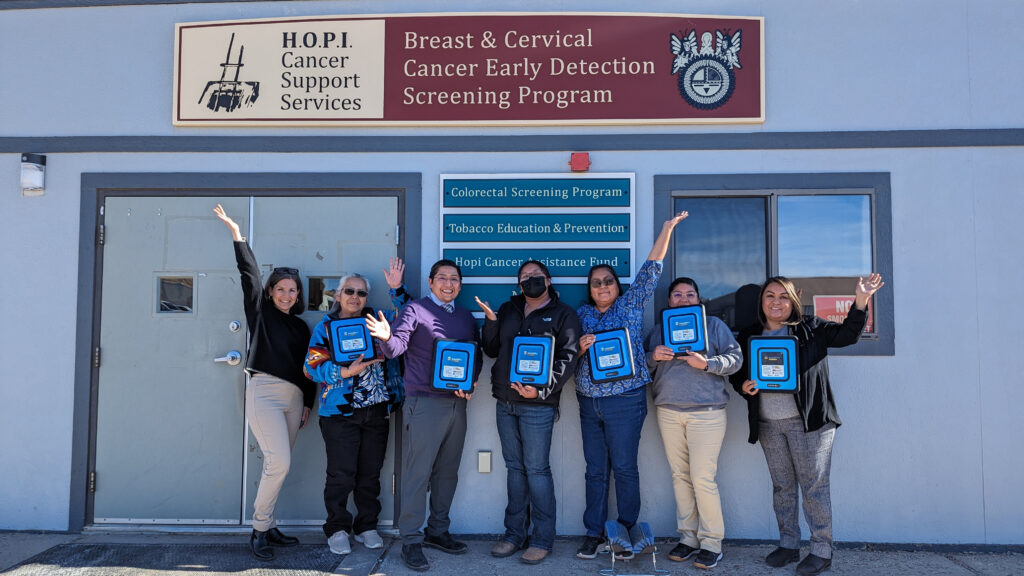
As we prepare for follow-up trips this spring and summer to conduct monitoring and evaluation, our team is already working to further improve the new hardware — making enhancements to the charge controller to make the next batch of SolarSPELL libraries even easier to produce.
Stay tuned for deeper dives into our streamlined new hardware and these new projects!
